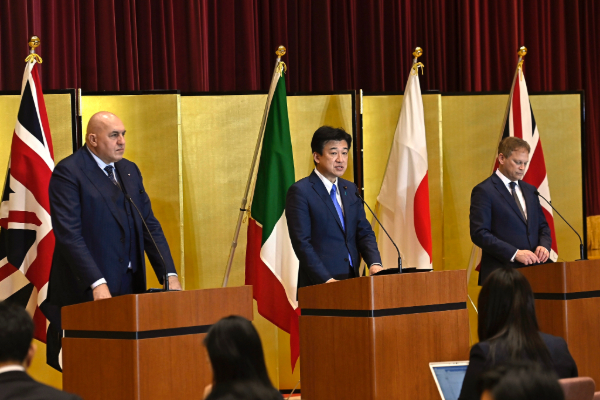Japan’s cabinet has given the go ahead to the export of new fighter jets to other countries. These jets are being developed by Japan with the UK and Italy. The new rules would allow jets to be sold to countries that Japan has signed defence pacts with, and where there is no ongoing conflict. The jet sale will however have to be approved by the cabinet.
The move is a sign of the country moving away from pacifist policies and recently the country has pledged to double military spending by 2027, citing threats posed by China and North Korea.
Exports would also help boost Japan’s defence industry, which historically has catered only to the country’s Self Defense Force, as Kishida seeks to build up the military. Japan began opening the door to some exports in 2014, but the industry has still struggled to win customers.
In 2022, Japan came onboard a Italy-UK collaboration, dubbed the Tempest, to develop this new fighter jet that will use artificial intelligence and advanced sensors to assist pilots.
Japan, which was previously working on a homegrown design to be called the F-X, agreed to merge its effort with a British-Italian programme. This would be Japan’s first defence equipment partnership with a country other than the US.
The announcement comes ahead of Prime Minister Fumio Kishida’s official visit to the US in April, where he is expected to strengthen ties with the US.
Japan sees China’s rapid military buildup and its increasing assertiveness as threats, especially growing tensions in the disputed East and South China Seas. Japan also sees increasing joint military exercises between China and Russia around Japan as a threat.
Japan following his defeat in WWII adopted a constitution that limits its military to self-defence and long maintained a strict policy to limit transfers of military equipment and technology and ban all exports of lethal weapons.
Opposition lawmakers and pacifist activists have criticised Kishida’s government for committing to the fighter jet project without explaining to the public or seeking approval for the major policy change.
With inputs from AP





